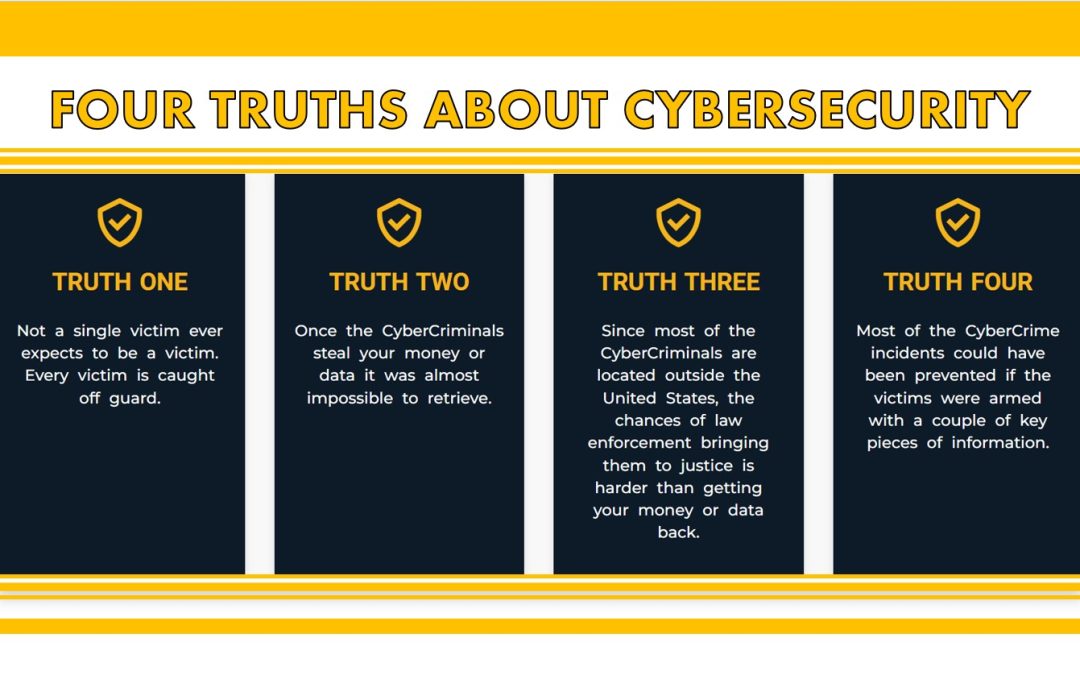NGT’s FIRST Cyber Security Summit 2023 was a GREAT event. We’d like to share some “take-aways” with you as we move forward in protecting your online presence.
We heard Scott Augenbaum talk about the Cyber Secure Mindset and the 4 ‘truths’ about cyber security.
- Truth #1: Not a single victim ever expects to be a victim. Every victim is caught off guard.
- Truth #2: Once the CyberCriminals steal your money or data, it’s almost impossible to retrieve.
- Truth #3: Since most of the Cyber Criminals are located outside of the United States, the chances of law enforcement bringing them to justice is harder than getting your money or data back.
- Truth #4: Most of the CyberCrime incidents could have been prevented if the victims were armed with a couple key pieces of information.
It’s up to individuals to ensure their online security at home, and at work. You might have impressive firewalls and anti-virus programs, but your online safety is only as good as every individual who takes the time to follow some simple preventive actions. Being proactive will guard against the negative consequences of cyber-attacks.
How can you take control of your Cyber Security?
At the heart of discussions during the Cyber Security Summit was MFA (Multi-Factor Authentication). You may hear it called “Two-Step Verification” or “Multi-factor Authentication.” When you sign into an account you need more than just the username and password. You need a second thing – what we call a second “factor” – to prove who you are. When signing in on a device or app you enter your username and password as usual, then you get prompted to enter your second factor to verify your identity. Compromised passwords are one of the most common ways that bad guys can get your data, your identity, or your money. Using multifactor authentication is one of the easiest ways to make it a lot harder for them.
We’ve discussed this multiple times in the past, but PASSWORDS are crucial. Use strong passwords, change them often, and don’t use the same password for multiple accounts.
THINK before you CLICK. Examine every email you receive. Understand that the bad guys desperately want you to click on a link or open an attachment.
- Look at the time an email was sent. If it was in the middle of the night, hesitate before opening.
- Check the address – the bad guys can make it look real by making slight changes to an address you’re used to receiving.
- Check the other recipients of the message. It could be an automated message if it included many people.
- Question “urgent” emails from your bank, credit card company, utility company. . . DON’T open it or click on links. Log in to the actual account manually through a browser to check the legitimacy.
- Make a phone call to a number you recognize if you’re questioning a message – don’t use the phone number included in the message.
- Do not store usernames and passwords on cloud accounts such as OneDrive, Dropbox, Google Drive, or iCloud.
As always, NGT is here to help!
Contact ngthelp.com with questions.
